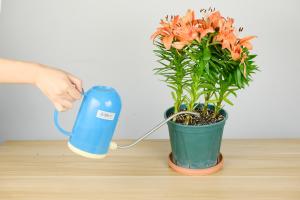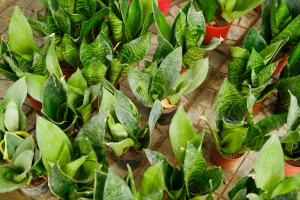Is a Ficus a Good Indoor Plant?
Indoor plants can be a great addition to any home or office. They not only enhance the beauty of the place, but also offer a range of health benefits, such as purifying the air and reducing stress. If you're looking for a popular indoor plant, the Ficus is an option worth considering. But, is a Ficus a good indoor plant? Let's take a closer look.
Ficus Overview
The Ficus is a large genus of plants, with approximately 800 species, ranging from small shrubs to large trees. The most common Ficus species used as an indoor plant is the Ficus elastica, also known as the rubber plant. The rubber plant is a hardy plant that can grow up to 100 feet in the wild, but when grown indoors its growth is limited to several feet. The Ficus elastica is a popular indoor plant due to its attractive appearance and low maintenance requirements.
Ficus Care
One of the reasons why Ficus is a good indoor plant is that it's easy to care for. Ficus plants thrive in bright, indirect light, but they can also grow in lower light conditions. However, if your Ficus is not getting enough light, its growth will be slow, and it may drop leaves. This shouldn't be a cause for alarm, though, as Ficus plants frequently shed their leaves. Ficus plants prefer slightly moist soil, so water your plant when the top inch of the soil feels dry to the touch. Overwatering your Ficus can lead to root rot, so make sure the soil has good drainage.
Ficus Benefits
Ficus plants have many benefits. They are great air purifiers, filtering out toxins such as formaldehyde, benzene, and trichloroethylene from the air. Moreover, research has shown that indoor plants like Ficus can improve mood and reduce stress levels. Ficus plants also help to keep the indoor air moist, which is essential for people with respiratory issues. Additionally, Ficus plants have large leaves that help to absorb sound, making them an excellent addition to noisy areas.
Ficus Drawbacks
Despite the many benefits of Ficus plants, they do have some drawbacks. Ficus plants are toxic to pets, so if you have cats or dogs, you may want to avoid having a Ficus in your home. Ficus plants can also attract pests, such as spider mites, mealybugs, and scale insects. These pests can cause damage to the leaves and stems of your plant. Ficus plants can also be sensitive to changes in their environment, such as fluctuating temperature or humidity levels, which can cause the plant to drop its leaves.
Conclusion
In conclusion, Ficus is a good indoor plant. It's easy to care for, has many benefits, and is attractive. However, if you have pets, you may want to opt for a different plant. Additionally, if you live in an area with a lot of pests, you may find yourself constantly battling infestations. But, overall, Ficus is a popular indoor plant for a reason—it's a great addition to any home or office.

 how many times do yo...
how many times do yo... how many planted tre...
how many planted tre... how many pine trees ...
how many pine trees ... how many pecan trees...
how many pecan trees... how many plants comp...
how many plants comp... how many plants can ...
how many plants can ... how many plants and ...
how many plants and ... how many pepper plan...
how many pepper plan...





























